Discover more about our solar system with these amazing fun facts about Jupiter!
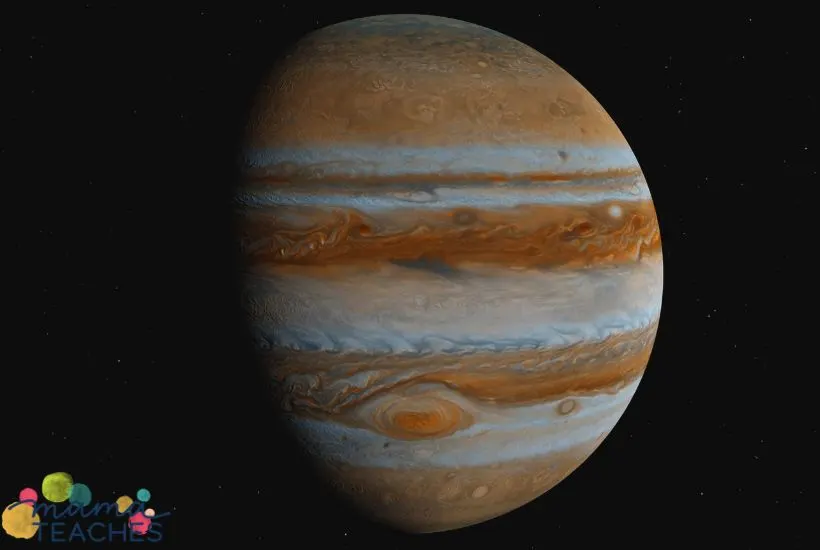
Jupiter, the largest planet in our solar system, is a fascinating planet.
It’s filled with captivating features that will leave budding scientists in awe.
This favorite planet is big in size, color, and unique characteristics.
Let’s discover some fun facts about Jupiter that will surely spark your curiosity!
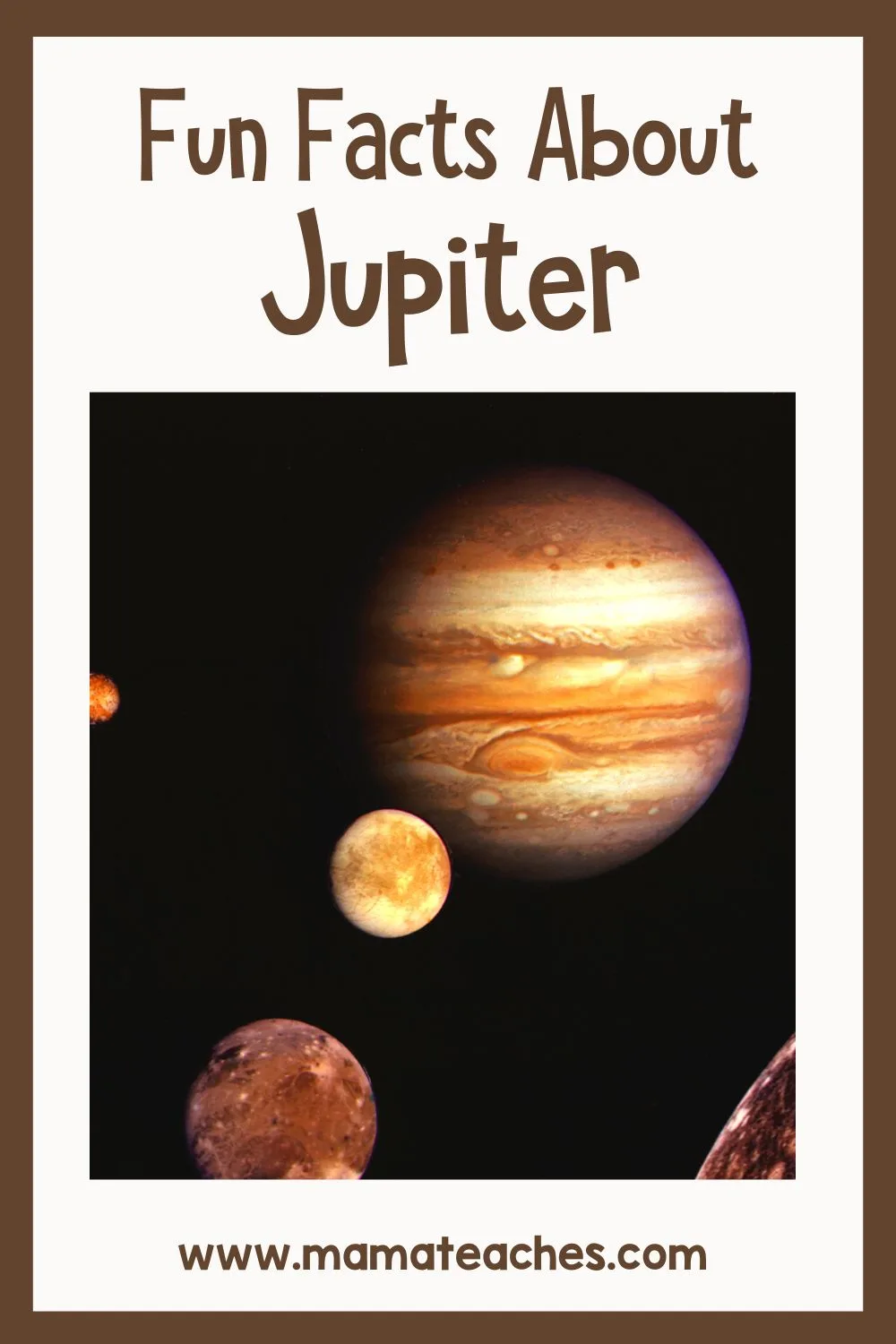
This article contains affiliate links to things that you might like.
Jupiter Fun Facts
The Planet Jupiter is Massive
Jupiter is a true giant among all of the planets.
In fact, it’s so big that more than 1,300 Earths could fit inside it!
Its immense size is due to its composition of hydrogen and helium gas.
These gases are what give Jupiter its massive volume.
Storms Swirl Around Jupiter
One of the most recognizable features on Jupiter is its Great Red Spot.
This “spot” is actually a massive storm that has been raging for centuries.
The Great Red Spot is a storm so large that it could engulf three Earths!
Jupiter actually gets its unique and vibrant appearance from the storms’ swirling clouds.
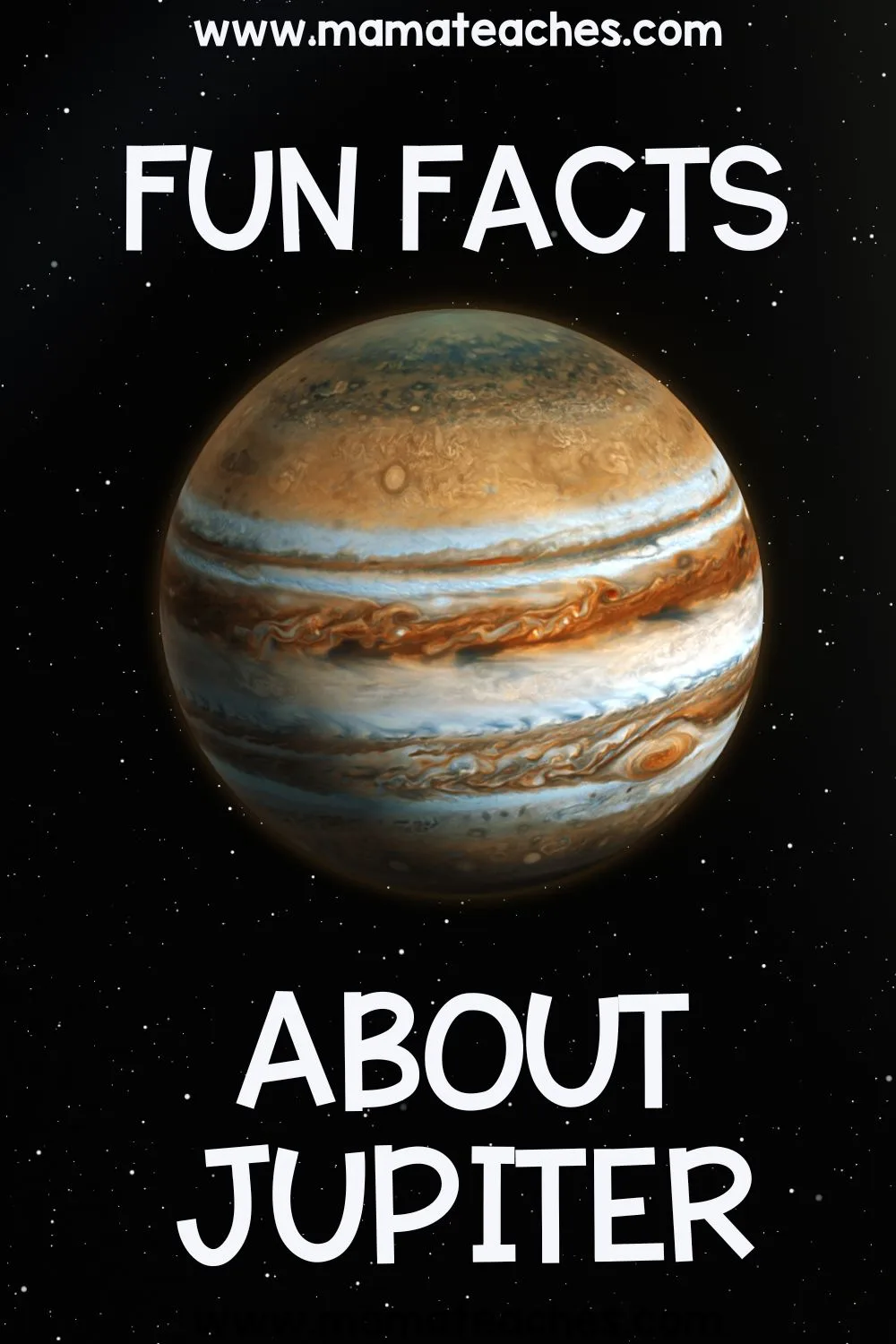
Many Moons Orbit Jupiter
Jupiter has a whopping 79 moons orbiting around it!
Some of these moons are quite famous, like Ganymede.
Ganymede is the largest moon in the solar system.
There is also Europa.
Europa may have an ocean beneath its icy surface that could potentially harbor life.
Can you imagine life on one of the moons of Jupiter?
A Day on Jupiter is Short
Jupiter completes a full rotation on its axis in just about 10 hours!
So this means that day on Jupiter is incredibly short compared to Earth.
This rapid spinning causes the planet to have an oblate shape.
Oblate means that it’s slightly flattened at the poles and bulging at the equator.
How unique!
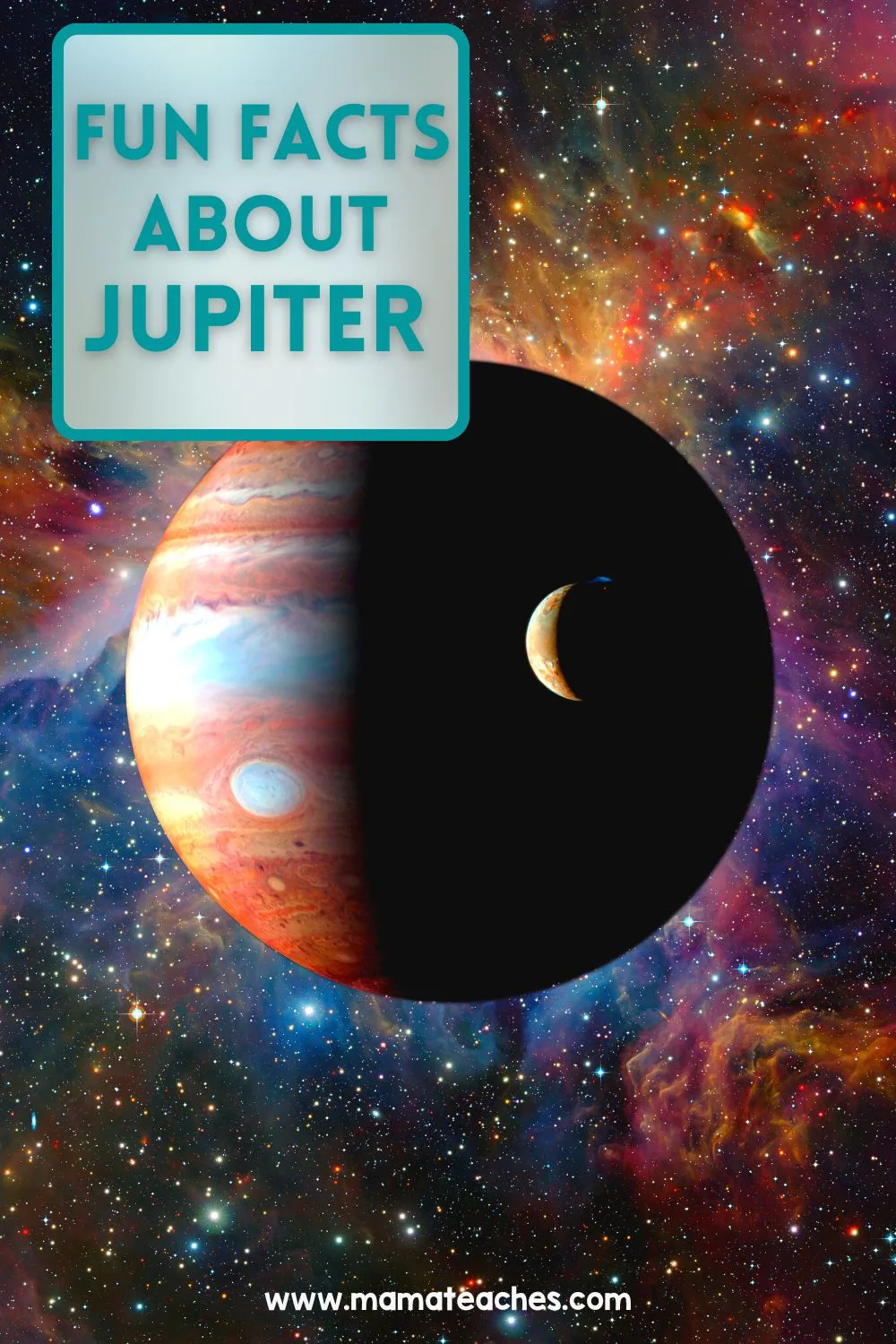
Jupiter has Rings
Although not as prominent as Saturn’s rings, Jupiter also has a faint ring system.
These rings are made up of tiny particles.
This makes them much harder to see compared to Saturn’s dazzling rings.
The rings around Jupiter were discovered by the Voyager 1 spacecraft in 1979.
Jupiter is the King of Magnetism
Jupiter boasts an incredibly strong magnetic field, about 20,000 times stronger than Earth’s.
This powerful magnetism creates intense radiation belts around the planet.
So, Jupiter is a very hazardous place for spacecraft to visit.
There are Different Skies on Jupiter
Jupiter’s atmosphere is made up of colorful bands of clouds that circle the planet.
These bands are created by powerful jet streams that move in opposite directions.
If you were to stand on Jupiter, you would see that the sky changes colors.
That’s incredible!
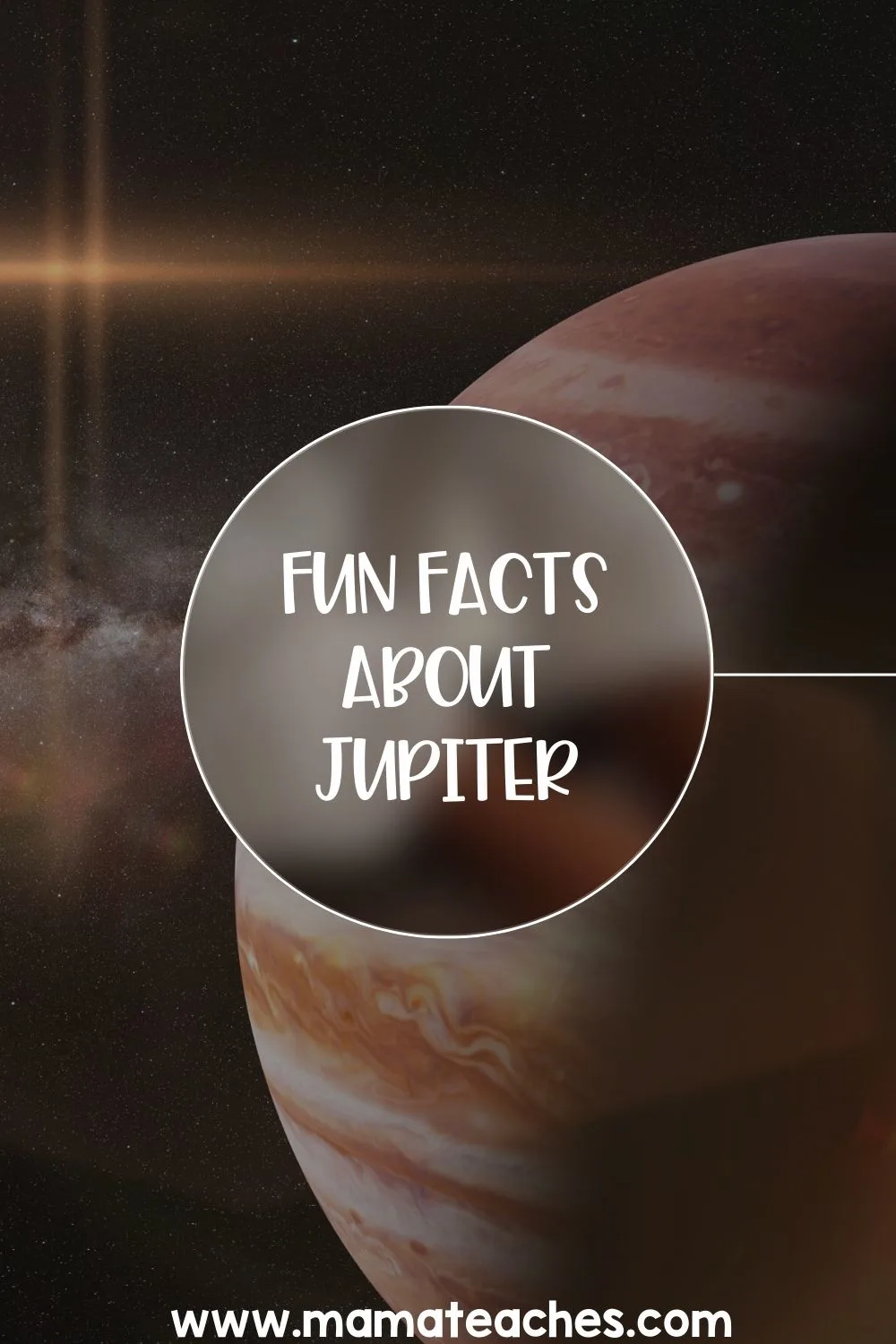
Jupiter has Galilean Moons
Four moons of Jupiter are very very large.
The names of these big moons are Io, Europa, Ganymede, and Callisto.
Together they are known as the Galilean moons.
They got this name from the astronomer Galileo Galilei, who discovered them in 1610.
They are some of the most interesting moons in the solar system.
Jupiter has Auroras
Just like Earth, Jupiter has auroras.
Do you know what an aurora is?
Well, it is a beautiful light display of different colors in the sky.
It happens when charged particles interact with the planet’s magnetic field.
However, Jupiter’s auroras are far more powerful and larger than those on Earth.
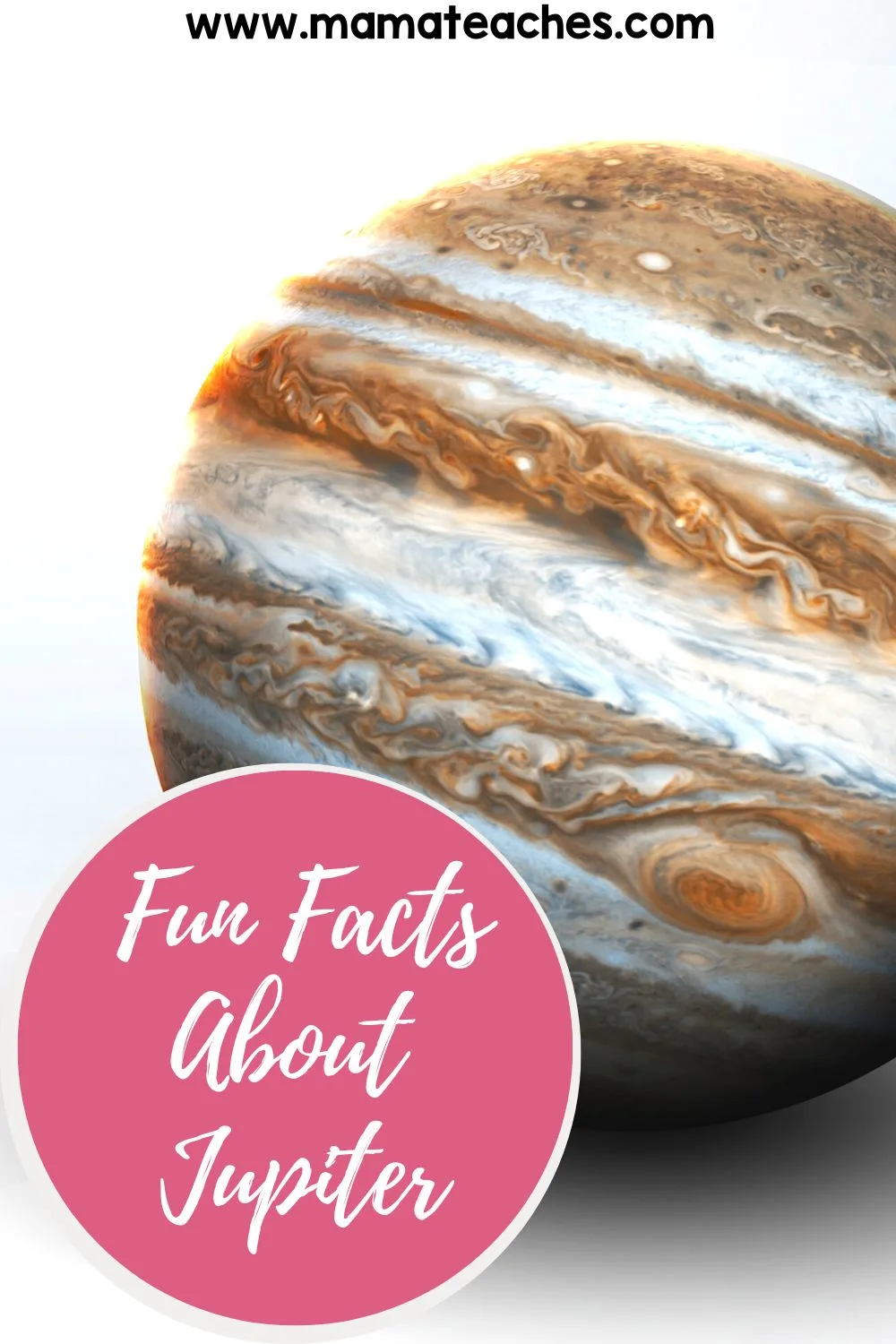
There have been Space Missions to Jupiter
Jupiter has been the target of many space missions.
One very famous mission, in particular, is known as Juno.
Juno has been studying the planet since 2016.
These missions help us to learn about Jupiter, such as its composition and atmosphere.
Fun Facts About Jupiter
As you can see, Jupiter is a planet filled with magnificent wonders.
Its size, storms, moons, and unique features make it a captivating subject of study.
So, the next time you gaze up at the night sky, look for Jupiter!
It is the largest planet in our solar system, after all.
You May Also Like…
